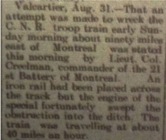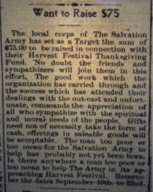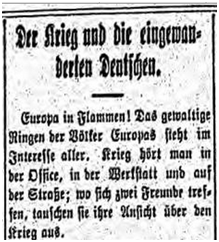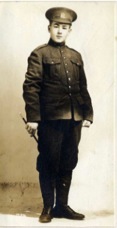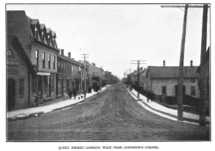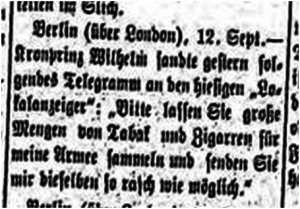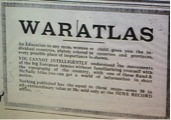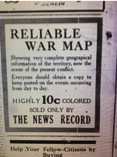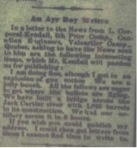On this day, the first Canadian contingent left bound for Valcartier, Quebec, for further training. The group which departed from Guelph included several members of the town Hespeler. The Hespeler Herald reports eight different individuals from the area were onboard; Chas Beckman, Lloyd Beckman, John Hotson, C. Richard Winn, Thomas. Wilson, Thomas Woolley, George Bell and Dick McKen. Of those who enlisted, Dick was the only individual without prior military training. This is an example of the strict requirements needed to enlist in the early stages of the war. As the war progressed these rigid structures would dissolve due to the increased demand of manpower during a prolonged engagement.
A second contingent, formed shortly after the first group, faced a close call en route to Valcatier during a sabotage attempt. An iron bar was placed across the tracks in front of the eastbound troop train carrying men from the Waterloo Region to the camp. Luckily for the new recruits, the skirt on the engine of the train knocked the bar aside as the locomotive continued to steam at 40 mph. The perpetrator was never caught and no injuries were reported.
(“A Trip to Valcartier, Quebec,” Elmira Signet, 3 September 1914; “A Trip to Valcartier, Quebec,” Hespeler Herald, 3 September 1914)
